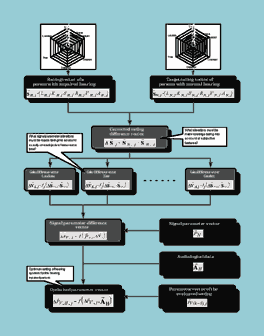| With the increasing mobility of the senior population, service contracts that explain office policies, particularly the unbundling of testing and dispensing-related fees, represent a proactive step for hearing care professionals and their practices. |
Every hearing care professional, at some point, will require the services of another hearing care professional. A huge number of Americans move each year or “migrate” seasonally, and clients who purchase hearing instruments in one place are often faced with needing services in a different region of the country. A hearing instrument user can also find him/herself without the services of the original dispensing professional due to the retirement of the hearing care professional, sale/closing of the office, etc. Finally, there are a number of special circumstances in which one hearing care professional might recommend that a client see another professional due to the need for special testing (e.g., ENG, ABR, etc.) that cannot be provided in that office or for a variety of other issues. Without appropriate guidance and/or the use of hearing care service agreements, these situations have the potential to create negative consumer experiences and can result in an unfavorable consumer perception of the overall industry.
Recent studies have verified what most hearing care professionals have known for a long time: effective counseling and service are extremely important correlates in customer satisfaction. With the gradual demographic shift from WWII-generation clients to Silent Generation (ages 54-65) and Baby Boomer generation clients, it can be expected that the service aspects of hearing care will become even more important, if not crucial, for the industry’s growth.
This paper will discuss post-fitting adjustments and service in a different place than where the hearing instruments were originally purchased. Some proactive solutions will be proposed, and an example of a form that explains a service agreement to the potential client will be presented.
Mobile Client Populations and Service Contracts
With today’s increasingly mobile population (of both younger and older adults), the provision of continual on-demand hearing services is a growing concern. Today’s population of hearing instrument wearers is much more mobile, travels more frequently and resides all over the country, often spending considerable amounts of time in “second homes.” This presents a true dilemma for dispensing professionals, both as the “dispensers” and “servicers” of hearing instruments.
A dramatic change has occurred, with over 40% of all hearing instrument users purchasing programmable or digital instruments. Services required by the “non-selling dispenser” (e.g., the dispensing professional who didn’t fit the aid but is called upon to service the aid) can be complicated, especially when fairly extensive adjustments, modifications or repairs are required.
If not addressed properly, these service opportunities have the potential to create image problems for the hearing industry should a client become frustrated by either a lack or denial of services. A denial may be necessary simply because a called-upon service request cannot be completed in a timely manner. Sometimes this occurs because the dispensing professional either does not have experience with a particular programmable or digital instrument or lacks the equipment/software to make the adjustments. As mentioned earlier, denial or delayed service may create the false impression that the dispensing professional is inept or is not interested in providing the service.
Clients who need service are sometimes not very patient when they need help with their hearing instruments. This attitude has long prevailed due to the debilitating impact that hearing loss can have on a person’s quality of life, and in our consumer-driven society this impatience is likely to become even more pronounced with time. Whether or not the device was originally dispensed from your office, you are the one representing the hearing care field at that moment in time and you are the one who needs to deal with the client’s problem in a constructive manner.
What office protocols are needed to resolve this problem? One creative dispensing audiologist (Louis DeBray, Klamath Falls, OR) established a “Service Disclosure Contract for Hearing Instruments Purchased from Another Dispensing Professional.” The service announcement (Fig. 1) was, in part, inspired by and copied from an excellent article by David A. Berkey.1 DeBray’s contract covers four important areas:
• Warranty coverages;
• Fees for adjustments;
• Service contracts on aids purchased elsewhere, and
• Frequently asked questions.
| Bringing you the most complete service Even though you have purchased your hearing instruments elsewhere, we are happy to provide you with the service you need. Plus, we offer a money-saving service contract and encourage you to bring even the smallest question or problem to our attention. We’re here to serve you. We want you to enjoy all the benefits of improved hearing for years to come. What your hearing aid warranty does and does not cover If your hearing aid malfunctions while under the manufacturer’s warranty and requires factory service, we will handle the repair for you, but a service charge will apply as follows: Fees for hearing aid adjustments for instruments purchased elsewhere Our hourly rates for hearing aid adjustments are: Our Service Contract rates are: A service contract allows your hearing instrument(s) to be “adopted” by us. We will extend to you the same no-charge services and appointments for any purpose that we would extend to someone who bought their hearing instrument from us. There are no additional charges for any warranty work or adjustments, and minimal charges for routine out-of-warranty service. Frequently Asked Questions Q: I just bought my hearing aid elsewhere, then moved here. How can I avoid paying so much for service from you? Adapted with permission from Louis DeBray. |
| Fig. 1. Service Contract Explanation. |
The information sheet represents an excellent resolution for the service issues discussed previously in this article. While a patient’s satisfaction is not guaranteed using this (or a similar) document, it does answer the ethical and professional dilemmas in a proactive and candid manner.
Another possible use for the service agreement would be as a guideline for contracting services for a patient. Suppose a client resides in Florida, but lives in Oregon for four months each year. The Florida dispensing professional can guarantee service for their client while in Florida, then procure an appropriate service contract from a reliable dispensing professional in Oregon for the remainder of the year. This practice would overcome many, if not all, of the client’s service concerns. Most manufacturers are happy to furnish the name and address of a dispensing professional upon request. After making sure that the dispensing professional has a good reputation and can provide the appropriate services, a letter could be sent to him/her with a check to purchase a service contract.
It might be argued that another (at least partial) solution to the elsewhere-service problem is for all dispensing professionals to unbundle their testing and service fees. In an ideal world, if all dispensers would utilize purchased-elsewhere services, many of the challenges of the rapidly changing hearing instrument user demographic would probably disappear.
The current and future era of dispensing hearing instruments will only become more complex with regard to services for the increasingly mobile hearing-impaired population. Some positive changes in office procedures would appear to be in everyone’s best interest.

Reference
1. Berkey DA: Ethical dilemmas in dispensing high-tech instruments. ADA Feedback 2000; 11 (1).
Correspondence can be addressed to HR or Terry S. Griffing, MS, Audina Hearing Instruments, P.O. Box 877, Casselberry, FL 32718.




